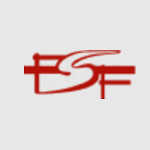| Latest FSF Updates To Software Licenses |
| Written by Sue Gee | |||
| Friday, 07 June 2019 | |||
|
The FSF Licensing & Compliance Lab recently refreshed its page which gives guidance and recommendations about free software licenses and has added two new licenses to its non-free list.
If you've ever felt confused about open source licensing you are not alone. The good news is that the Free Software Foundation has a highly informative and well-maintained list of licenses, not only for software but also for documentation and for other works, drawing a distinction between free and non-free. The fact that that the Personal Public Licence Version 3a and the Anti-996 Licence have both been added to the non-free list isn't really the important bit of this news item. It is that the existence of the Various Licences and Comments about Them that deserves being better known. Open source software licensing has been greatly improved and expanded since GitHub introduced its Choose A Licence microsite which encourages users add a licence to their projects and points out what happens if they don't. It promotes the MIT License and the GNU GPLv3 and lists a few others, including the Apache License 2 and the Unlicense - but what if you don't recognize the jargon starting with "copyleft" or understand what "free" means in the context of licensing? This is where the FSF can help. According to its Licences page: Copyleft is a general method for making a program free software and requiring all modified and extended versions of the program to be free software as well. To quote from its Free Software Definition: “Free software” means software that respects users' freedom and community. Roughly, it means that the users have the freedom to run, copy, distribute, study, change and improve the software. Thus, “free software” is a matter of liberty, not price. To understand the concept, you should think of “free” as in “free speech,” not as in “free beer”. We sometimes call it “libre software,” borrowing the French or Spanish word for “free” as in freedom, to show we do not mean the software is gratis. Expanding on this the FSF outlines the four essential freedoms stating: A program is free software if the program's users have the four essential freedoms:
It is in light of these freedoms that Various Licenses and Comments about Them classifies licenses, putting them into one of the following color-coded categories: The list is well annotated so you can quickly grasp the differences between different options and the FSF isn't reticent about which ones it advocates, and which you should avoid. The Green list starts with its top recommendation: GNU General Public License (GPL) version 3 (#GNUGPL) (#GNUGPLv3) It goes on to lists other GNU licenses and then lists dozens of other compatible ones in alphabetical order. There are almost as many licenses in the yellow group. They qualify as being free software licenses, and are mostly copyleft, but not compatible with GNU GPL. Most of their descriptions include "should be avoided", "please do not use" and "urged not to use" and the reasons for these prohibitions are succinctly stated. The red group, non-free, starts with No license which outlines the dangers of source code that doesn't carry a license. The Commons clause is one inclusion in this list. Others that are more surprising are the NASA Open Source Agreement which fails to be free because it includes a provision requiring changes to be your “original creation” whereas free software development depends on combining code from third parties. Many of the inclusions on this list are probably more or less defunct - such as the Sun Community Source License and the Sybase Open Watcom Public License version 1.0. However others, such as the Oculus Rift SDK License are relatively recent. The reason for putting the latest two licenses into this category are instructive. In the case of the Personal Public License Version 3a it is because it denies some users (organizations, governments, businesses) the four freedoms and the Anti-996 License places restrictions on the freedom to use the program for any purpose. Its listing concludes: Please do not use this license for your own software. We will avoid using software under this license, as we do all other nonfree software.
More InformationRecent licensing updates - FSF Various Licenses and Comments about Them Related ArticlesFSF Update Rules Commons Clause Non-Free To be informed about new articles on I Programmer, sign up for our weekly newsletter, subscribe to the RSS feed and follow us on Facebook or Linkedin.
Comments
or email your comment to: comments@i-programmer.info |
|||
| Last Updated ( Friday, 07 June 2019 ) |




